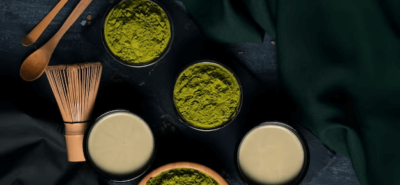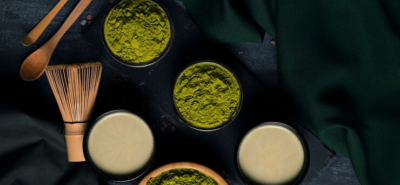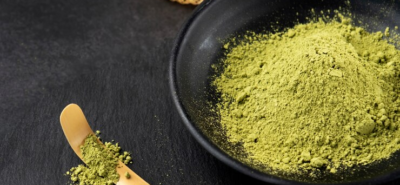Is Kratom Legal in Tennessee?
Embarking on the quest for knowledge about Kratom legality in Tennessee unveils a landscape of intrigue and curiosity. In a world where natural supplements are gaining traction, the status of Kratom remains a subject of scrutiny and interest. The southeastern state of Tennessee stands as a microcosm, sparking questions about regulations, restrictions, and the broader conversation surrounding this substance.
As we delve into the question, “Is Kratom Legal in Tennessee?”, it is crucial to know the intricacies of laws, changing viewpoints, and the dynamic essence surrounding the subject. In this blog, we aim to provide clarity and insights into the legal framework that surrounds Kratom in the Volunteer State.
Join us on a comprehensive exploration, where we navigate through the legal intricacies, historical context, and potential implications for Kratom enthusiasts in Tennessee. Whether you’re a seasoned Kratom user or a curious individual, this blog is your compass through the insights into Kratom legality in the picturesque state of Tennessee. Let’s unravel the story together and empower ourselves with knowledge.
Understanding Kratom: A Quick Overview
Before delving into the legal intricacies, let’s briefly understand Kratom. Derived from the leaves of the Mitragyna speciosa tree, Kratom has gained popularity for its varied properties to enhance well-being. However, its legal status can vary significantly from state to state.
Embarking on a journey to comprehend the enigmatic world of Kratom is vast. For those uninitiated, Kratom is a tropical evergreen tree native to Southeast Asia, belonging to the coffee family. Its leaves have been cherished for centuries for their potential wellness properties, and today, they spark a global conversation about well-being.
Beyond the science, we delve into the cultural tapestry woven with Kratom, examining its historical significance and traditional roles in the regions where it thrives. As the global interest in Kratom continues to rise, it’s crucial to appreciate its roots and the cultural context that shapes perceptions.
Furthermore, we’ll touch upon the ongoing debates and discussions regarding Kratom’s legal status, safety considerations, and its potential as a natural remedy. The aim is not just to provide information but to empower readers with a comprehensive understanding, fostering informed decisions to buy kratom and its responsible usage.
Legal Status in Tennessee
According to the information gathered from reputable sources, Kratom is currently legal in Tennessee. This means that residents are permitted to take Kratom products for personal use. However, as with any substance, there are nuances that individuals should be aware of.
Tennessee’s neighboring states, Arkansas and Alabama, are the only ones with specific laws governing and limiting the usage of kratom. This means that individuals might legally acquire kratom in a different state but could potentially encounter legal consequences upon transporting it back into Tennessee.
Kratom Consumer Protection Act
The Kratom Consumer Protection Act (KCPA) is a legislative initiative aimed at safeguarding the rights and well-being of individuals who take kratom products. Proposed in various states across the United States, the KCPA seeks to establish regulatory frameworks that ensure the responsible sale and distribution of kratom. The primary goal is to protect consumers by setting quality standards for kratom products, including labeling requirements and testing procedures.
Under the Kratom Consumer Protection Act, vendors are often required to adhere to strict guidelines regarding product purity and lab-tested Kratom, ensuring that kratom is free from contaminants and adulterants. The legislation also typically includes provisions to restrict the sale of kratom to individuals below a certain age, promoting responsible usage.
Advocates of the KCPA argue that implementing such measures not only safeguards consumers but also fosters a positive image for the kratom industry. By creating a transparent and regulated market, the act aims to address concerns related to product safety and consistency.
States that have adopted the Kratom Consumer Protection Act demonstrate a commitment to balancing consumer access to kratom with the necessity of ensuring its safety. As discussions surrounding kratom continue, the KCPA represents a significant step toward responsible regulation. You can stay informed of this act when you buy Kratom in Tennessee.
Specifics and Nuances
While Kratom is legal in Tennessee, it’s essential to delve into the specifics. For instance, are there any restrictions on the sale of Kratom, or is it freely available? These finer details can influence how individuals access and utilize Kratom in the state.
Moreover, as the legal landscape evolves, staying informed is crucial. Regularly checking official state resources and reputable Kratom-related websites ensures that individuals are up-to-date with any changes or amendments to the existing laws.
Insights from Trusted Sources
To complement our exploration, we also gathered insights from good sources that often provide valuable information on Kratom legality. These sources collectively emphasize that, at the time of writing, Kratom is legal for personal use in Tennessee.
In both 2017 and 2018, Tennessee senators deliberated on proposed bills that categorized kratom as a prohibited and controlled substance. However, due to fervent opposition from kratom advocates and users, these bills were not successfully passed. As of now, there is no ongoing legislation in Tennessee concerning kratom.
Learn more: Is Kratom Legal in Texas? All You Need to Know
Conclusion: A Legal Note for Kratom Enthusiasts
In conclusion, the current legal status of Kratom in Tennessee allows for its possession and consumption by individuals. However, as with any botanical substance, responsible use is essential. Individuals should stay informed about any legal developments, adhere to existing regulations, and source their Kratom products from reputable vendors.
As laws can change, this blog serves as a snapshot of the current landscape. Kratom enthusiasts in Tennessee should stay vigilant, consult official state resources, and be aware of any potential shifts in the regulatory environment. For now, Tennessee stands as a state where Kratom users can explore the potential benefits of this botanical substance within the bounds of the law.












Leave a Reply
You must be logged in to post a comment.